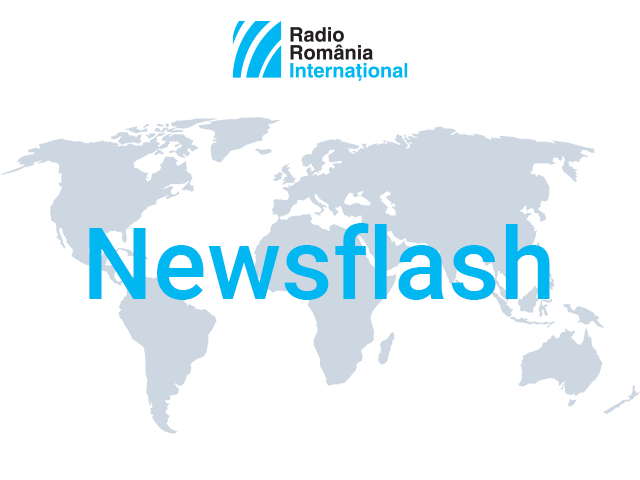January 23, 2022 UPDATE
A roundup of domestic and international news

Newsroom, 23.01.2022, 20:00
COVID-19 ROMANIA – A little over 14 thousand new cases of
COVID-19 infection were reported on Sunday in Romania, in addition to 22
related fatalities. Compared to previous waves, the rate of hospitalization of
people who got infected is much lower, authorities say. Some 600 people are
currently in intensive care. The authorities expect the infection rate to
continue to rise in following days, which will in turn determine a rise in the
rate of bed occupation across hospitals. In the worst-case scenario, Romania
could report as many as 70 thousand daily infections in February. At present,
the incidence rate in Bucharest has reached 9.50 per thousand inhabitants.
Starting Sunday, people from Bucharest and Ilfov can test for COVID-19 in 20
medical units, with an additional 8 expected to open next week. The measure
follows an announcement made by the Ambulance Service, who said the number of
people calling for COVID testing has increased alarmingly, causing delays of up
to 72 hours in the arrival of testing teams. Over 8 million Romanians have so
far received at least one shot of the anti-COVID vaccine.
UNION – Romania will mark 163
years since the Union of the Romanian Principalities on Monday by means of
various events. On January 24, 1859, Alexandru Ioan Cuza was proclaimed ruler
of the Principalities of Moldavia and Wallachia, voted by the Elective Assembly
in Bucharest. Cuza’s rule (1859-1866) laid the foundations of modern Romania
through radical reforms. Cuza adopted the Civil and Criminal Codes and created
a national army. It also introduced mandatory primary education and founded the
first universities. Cuza was forced to step down and go into exile in 1866. His
successor was King Charles I of Hohenzollern-Sigmaringen. His
long rule wound earn Romania its independence from the Ottoman Empire. In 1918,
King Ferdinand the Unifier completed the nation-building process by uniting the
territories with a Romanian majority population in 1918.
FAC MEETING – Romania’s Foreign
Minister, Bogdan Aurescu, is attending the EU Foreign Affairs Council (FAC)
meeting in Brussels on Monday. EU Foreign Ministers will discuss security
developments in Europe and the developments in Libya and Syria. Attending by
videoconference will also be US Secretary of State, Antony Blinken. High on the
meeting’s agenda are also the latest developments in Mali, Sudan and the
India-Pacific area. The meeting will continue debates occasioned by the Gymnich
meeting of EU Foreign Ministers in Brest, France, held on January 13-14.
Minister Aurescu will reiterate Romania’s position in the current context, with
a focus on EU unity, based on the shared principles and values. The Romanian
official will call on the EU to continue to adopt firm and reliable deterrence actions
with respect to Russia, while at the same time to consolidate Ukraine’s
resilience and other partners in the Eastern vicinity.
RUSSIA-NATO RELATIONS – The United States
find the accusations over Moscow’s plans to install a pro-Russian leader in Ukraine
deeply concerning, the White House said in response to a report by
the British Foreign Office. The Ukrainian people have the sovereign right to
determine their own future, and we stand with our democratically elected
partners in Ukraine, National Security Council spokeswoman Emily Horne said.
In a harsh press release, British Foreign Secretary, Liz Truss, condemned what
she has termed the extent of Russian activity designed to subvert Ukraine.
The British Foreign Office claims Russia is trying to install a pro-Russian
leader in Kiev as Moscow weighs up a further invasion and occupation of
Ukraine. In another development, NATO has rejected Russia’s request to withdraw
its troops from Bulgaria and Romania and denounced the idea of a spheres of influence
in Europe. Polish Prime Minister, Mateusz Morawiecki, urged European leaders to
adopt a firm and unitary attitude against Russia, in the wake of Moscow’s plans
to invade Ukraine. Moscow has rallied over 100 thousand troops on the Ukrainian
border. Estonia, Latvia and Lithuania, all members of NATO, will provide
Ukraine with anti-tank and anti-air missile systems made in the United States.
Romania’s president, Klaus Iohannis, has called a meeting of the country’s
Supreme Defense Council to discuss the growing tensions in the region. (VP)




























